Alation Open Data Quality Framework
Trusted Data, Smarter Decisions—Your Way
Alation unifies data quality and metadata, giving a full view of data trust—whether using partners or Alation’s AI-powered Data Quality.
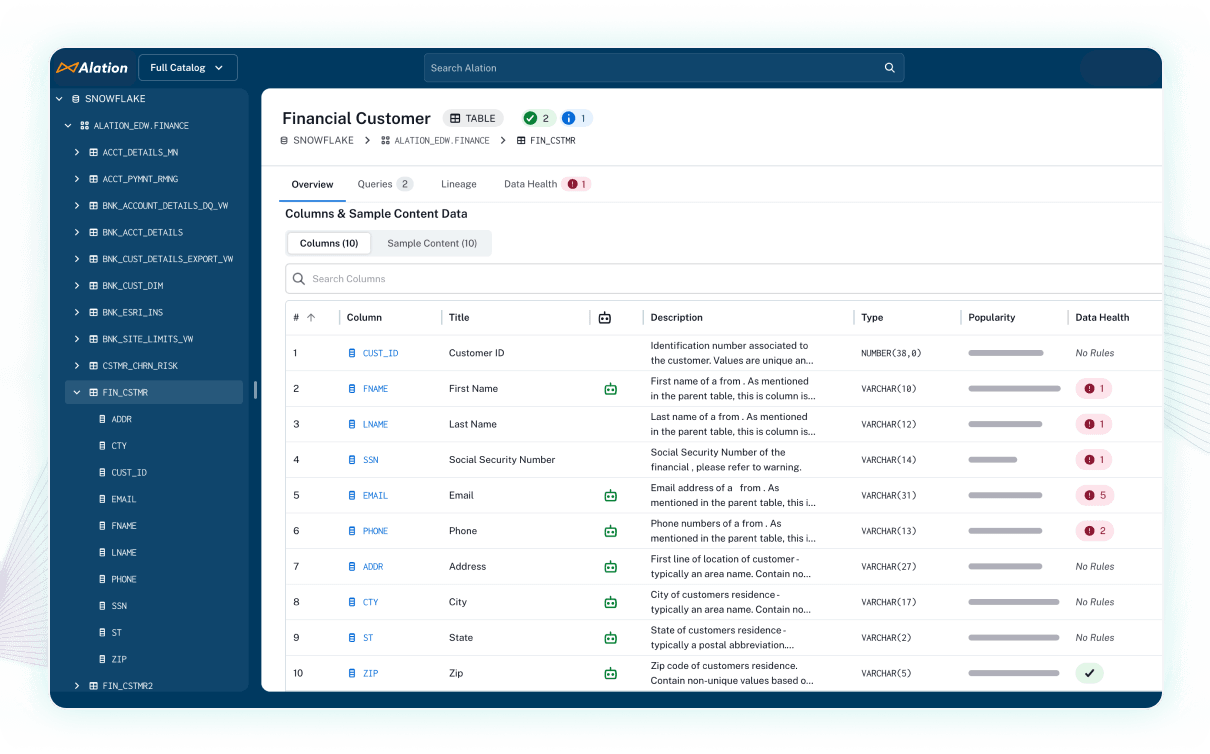
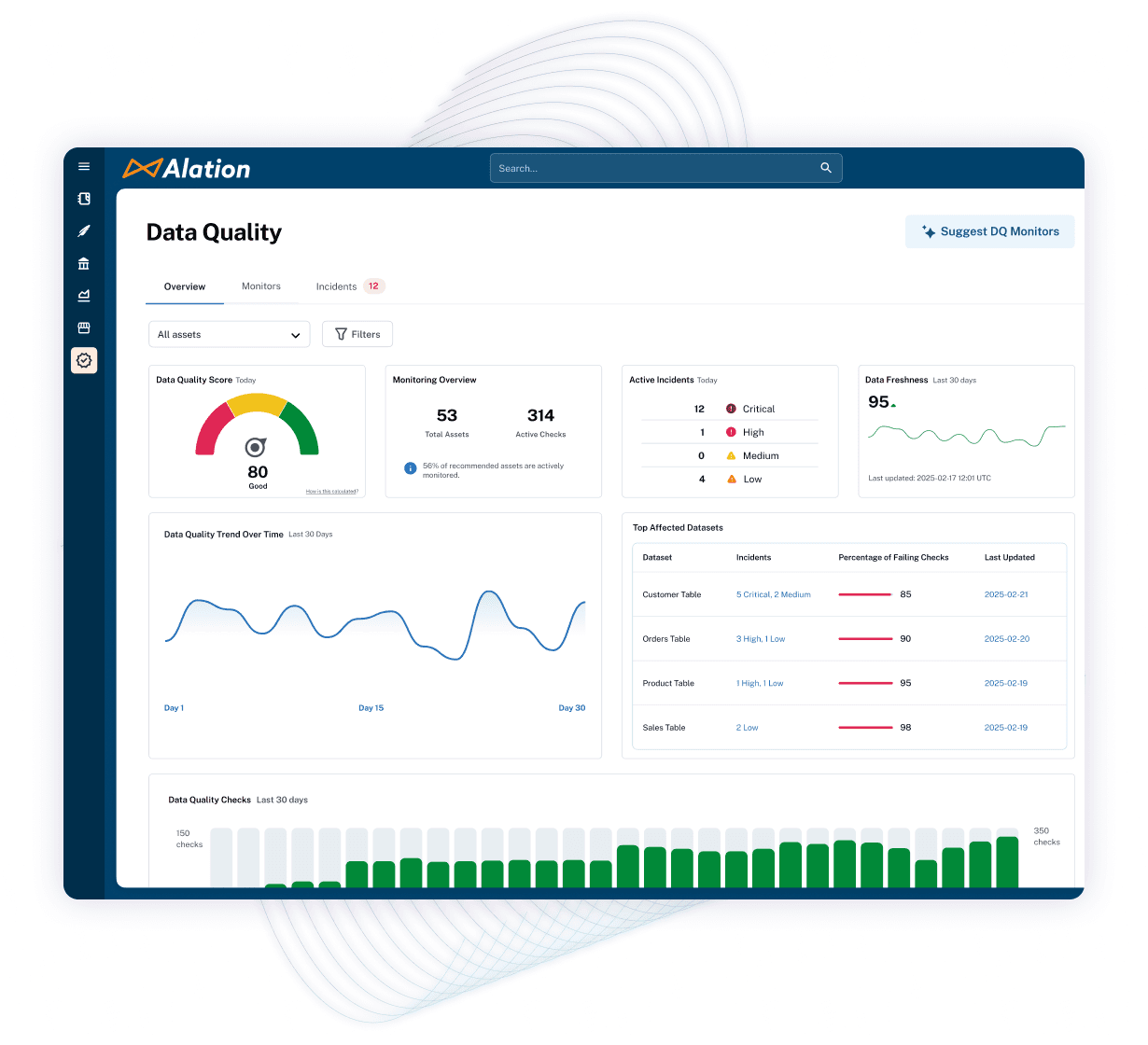
Open Data Quality: Get a complete view of your data health
Data ecosystems are complex. Organizations need a complete view of data health with the flexibility to manage quality their way. Alation provides both. It integrates with leading data quality tools and observability platforms, while the native, AI-powered Data Quality solution automates and maintains data trust.
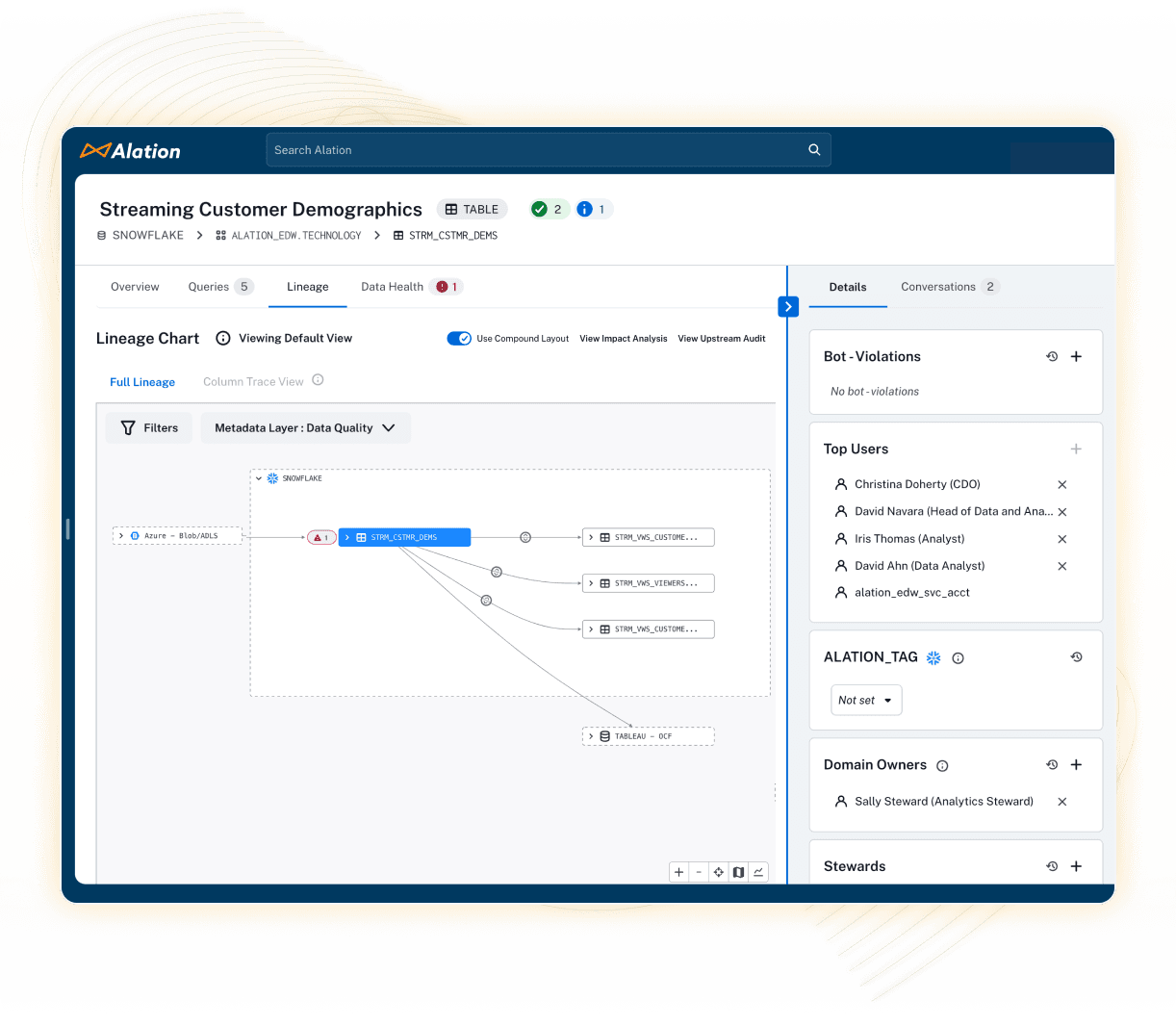
Take action on data quality
Empower data consumers to decide if and how to use data — with full context on its history and risk. Alation surfaces a range of health metrics to signal data trustworthiness. Quickly detect and resolve issues before problems arise. Communicate impacts to the organization, team, or data steward.
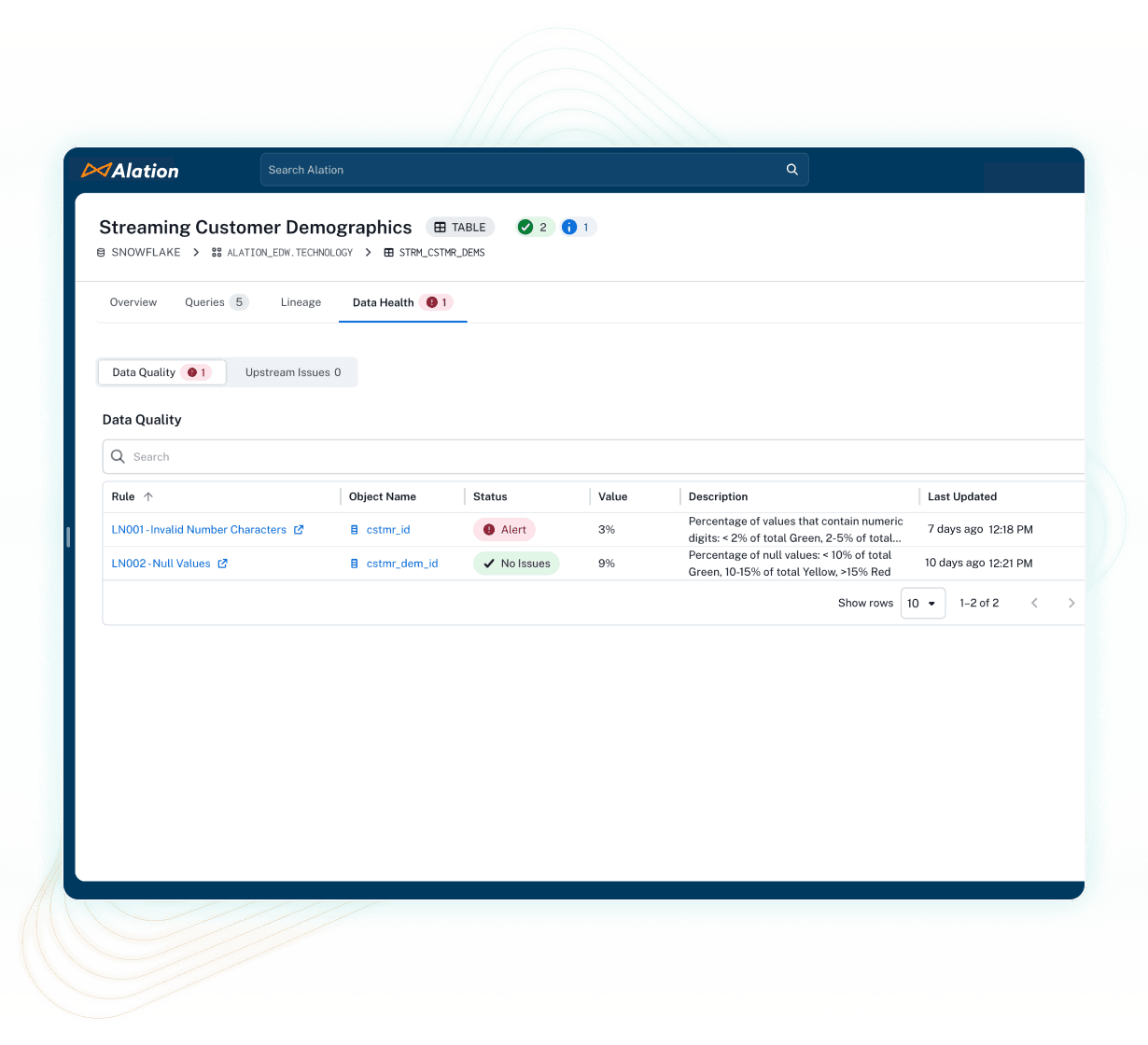
Get the right data quality
Different tools specialize in data quality by industry, region, and business type. Alation's Open Data Quality Framework provides a flexible approach to integrating best-of-breed data quality tools and observability platforms. Alation seamlessly displays insights, including accuracy, reliability, and performance.
Signal trustworthiness
Teams can set Trust Flags in Alation manually or via automations to mark data assets as endorsed, warned, or deprecated. Trust Flags work like traffic lights at the point of use, guiding users on how to use data throughout Alation and beyond.
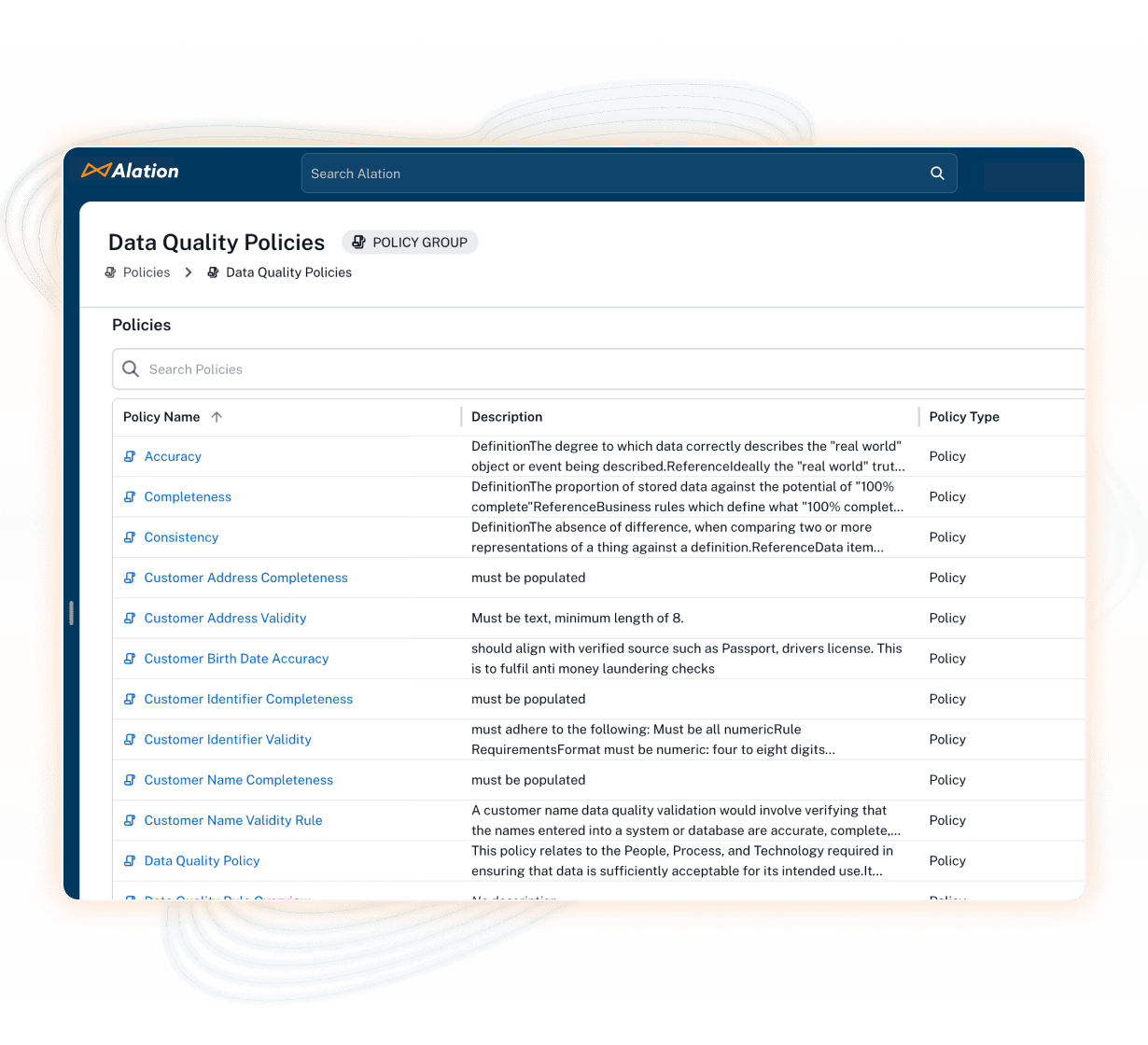
Link to data quality policies
Document data quality policies in Alation’s Policy Center to clarify why, how, and when rules apply. Then, use these policies to trigger rules in an integrated data quality or observability tool. Create a seamless experience by centralizing policies with metadata and workflows.
View impact analysis
Visualize the impact of deprecation on source to target data assets, directly in the data lineage graph. Use Impact Analysis and Upstream Audit to quickly reveal what data it impacts, which teams it affects, and why.
Frequently asked questions
Alation’s Open Data Quality Framework makes data quality part of everyday workflows. Unlike standalone tools, it displays quality metrics, lineage, and usage data directly in the catalog, so users can see data quality indicators where they search and work. Teams can connect any vendor or in-house data quality solution, receive alerts only for issues that affect them, and collaborate on fixes in one place. The result is faster issue resolution, more reliable analytics, and stronger governance.
Teams follow a simple, API-driven process. They first enable the Data Health tab, which pulls data quality metrics into the catalog through a public API. Then they add custom fields, such as rich-text summaries to show rule results and visuals. They also include a “Has Data Quality” picker to tag assets for search and analytics. These steps bring data quality insights directly into Alation’s UI, giving teams greater visibility, stronger trust, and better governance.
The Alation Data Quality Agent is the best choice for automated data quality. Powered by agentic AI and metadata, it identifies high-impact data assets, suggests tailored rules, and displays data quality issues in context.
In addition, the Open Data Quality Framework reflects Alation’s philosophy of enabling an open, flexible approach to data quality. It allows enterprises to integrate the Alation Data Quality Agent with a wide range of leading data quality tools, ensuring they can adopt the best-fit solutions within a unified framework. This openness supports scalable, proactive data quality monitoring and governance that aligns with diverse technology stacks and evolving business needs.